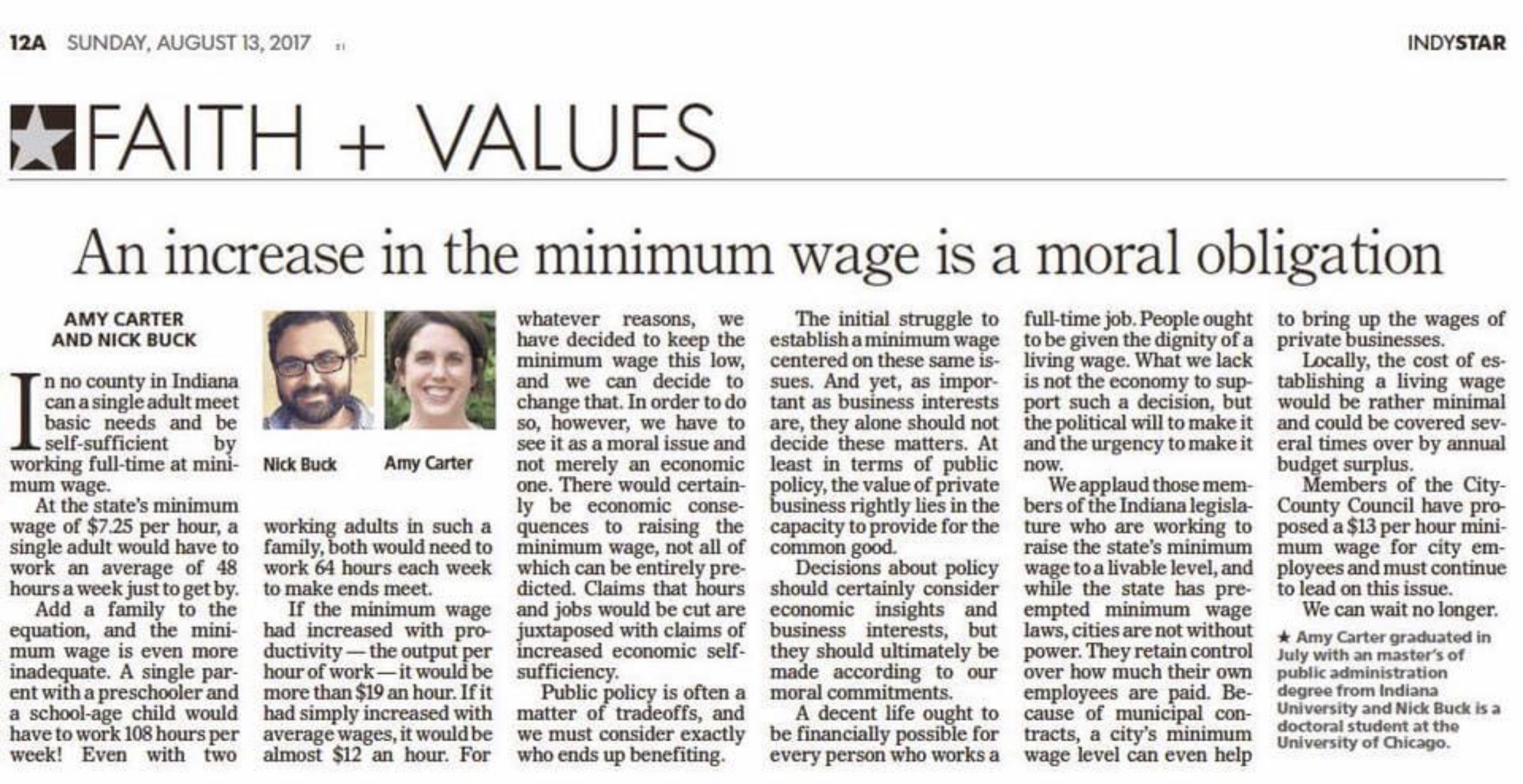”An increase in the minimum wage is a moral obligation”
Published in the “Faith & Values” section of The Indianapolis Star on August 13, 2017
Co-written with Amy Carter
FULL TEXT:
In no county in Indiana can a single adult meet basic needs and be self-sufficient by working full-time at minimum wage.
At the state’s minimum wage of $7.25 per hour, a single adult would have to work an average of 48 hours a week just to get by.
Add a family to the equation, and the minimum wage is even more inadequate. A single parent with a preschooler and a school-age child would have to work 108 hours per week! Even with two working adults in such a family, both would need to work 64 hours each week to make ends meet.
If the minimum wage had increased with productivity — the output per hour of work — it would be more than $19 an hour. If it had simply increased with average wages, it would be almost $12 an hour. For whatever reasons, we have decided to keep the minimum wage this low, and we can decide to change that. In order to do so, however, we have to see it as a mora issue and not merely an economic one. There would certainly be economic consequences to raising the minimum wage, not all of which can be entirely predicted. Claims that hours and jobs would be cut are juxtaposed with claims of increased economic self-sufficiency.
Public policy is often a matter of trade offs, and we must consider exactly who ends up benefiting.
The initial struggle to establish a minimum wage centered on these same issues. And yet, as important as business interests are, they alone should not decide these matters. At least in terms of public policy, the value of private business rightly lies in its capacity to provide for the common good.
Decisions about policy should certainly consider economic insights and business interests, but they should ultimately be made according to our moral commitments.
A decent life ought to be financially possible for every person who works a full-time job. People ought to be given the dignity of a living wage. What we lack is not the economy to support such a decision, but the political will to make it and the urgency to make it now.
We applaud those members of the Indiana legislature who are working to raise the state’s minimum wage to a livable level, and while the state has preempted minimum wage laws, cities are not without power. They retain control over how much their own employees are paid. Because of municipal contracts, a city’s minimum wage level can even help to bring up the wages of private businesses.
Locally, the cost of establishing a living wage would be rather minimal and could be covered several times over by annual budget surplus.
Members of the City-County Council have proposed a $13 per hour minimum wage for city employees and must continue to lead on this issue.
We can wait no longer.
